You know how many places are printed on Vietnamese currency
In each country there are different currency payment units, the images on money are often the best places and leaders of each country. For example, the US dollar prints pictures of presidents like Washington, Jefferson or Lincoln, . most Japanese yen prints portraits of celebrities such as Hidey Noguchi microbiologist, private house. Fuku-zawa Yukichi idea or writer Higuchi Ichiyo. And in Vietnam is no exception, besides the respected President of Ho Chi Minh, we also print more famous landmarks of the country, in accordance with Vietnamese culture.
Every day when we spend money, have you ever noticed the places printed on those bills, and whether you know how many places on those coins. The following article will summarize all the places that are in Vietnamese currency and share with everyone.
1. Image of one hundred dong sheet


This currency is no longer circulating in the market. But for those of the 8x generation, 7x back then surely no one will forget a hard time of Vietnam. This currency was issued May 2, 1992. The image printed on the 100-dong sheet is at Pho Minh pagoda, also known as Thap pagoda, which is a temple in Tuc Mac village, Nam Dinh. This temple was built in 1262. This temple once owned a large cauldron - one of four Vietnamese treasures (An Nam quartet).
2. Two hundred dong bill

Just like a VND100 bill, the VND 200 coin is also rarely circulated on the market. This VND 200 coin was issued on September 30, 1987, reddish brown. The image printed on the money is a plow machine and farmers are working enthusiastically, embodying Vietnam's rice agriculture.
3. Five hundred dong bill
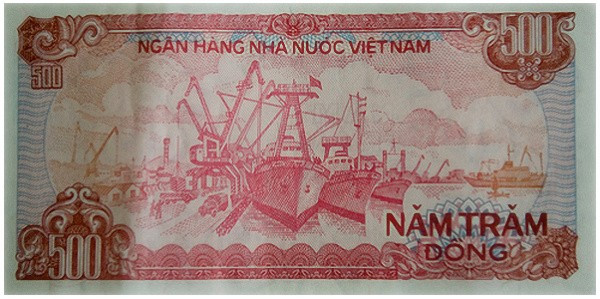
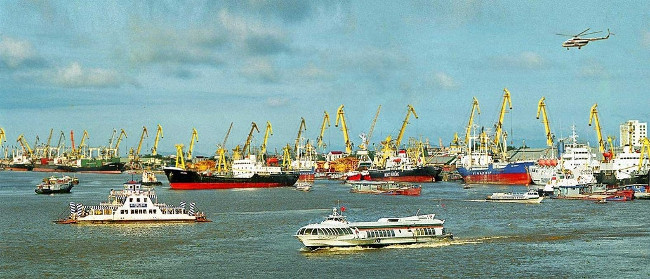
This note was issued: August 15, 1989, at this time our country's economy was starting in the development period, and the image printed on the 500-sheet is Hai Phong port. This is an integrated national seaport group, the second largest in Vietnam and the largest in the North, the international gateway of Vietnam.
4. One thousand dong
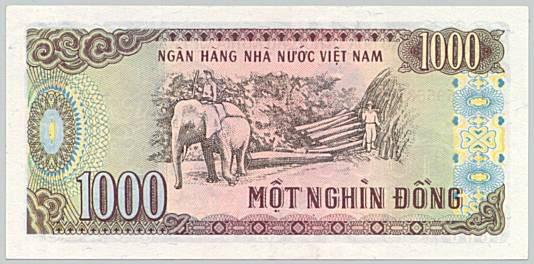
This currency is still widely circulated in the market. Jointly released on October 20, 1989. This banknote is a picture of workers who are riding elephants and logging in the Central Highlands.
5. Two thousand dong bill


One thousand dong and two thousand dong coins are produced on the same day, in the image of this two thousand dong coin, it is printed as a picture of the workers working at Nam Dinh Textile Factory. This was the largest textile factory in Indochina.
6. Five thousand dong bill
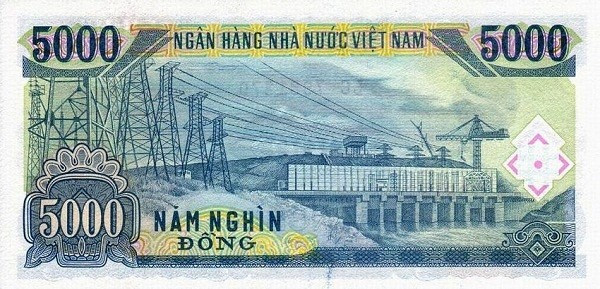

This banknote was issued on January 15, 1993. This is the image of your Tri An hydropower plant. This is a hydropower project of international stature and full of friendship between Vietnam and the Soviet Union. In 1991, the hydropower plant was inaugurated and put into use. Tri An hydropower project also has a general economic significance with the main purpose of integrating the national grid together with other plants supplying electricity to the national load. In addition, multi-purpose hydroelectricity, the project also ensures water for domestic and agricultural use, salty pushing and regulating floods .
7. 10,000 VND: Bach Ho oil field
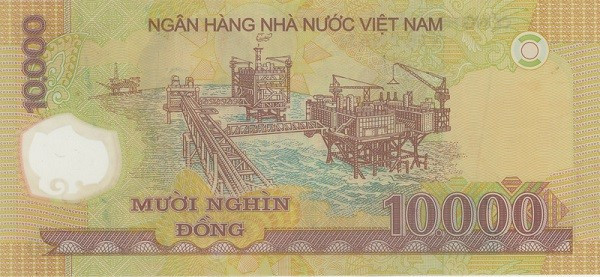
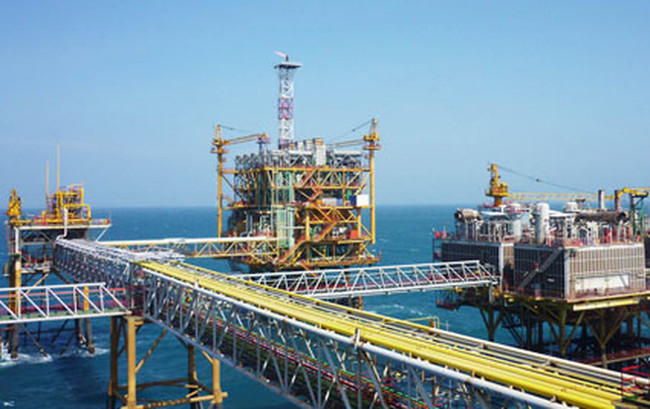
Bach Ho oil field is the largest oil field on our continental shelf. This is the main source of oil supply for Vietnam today, belonging to Cuu Long basin. The mine is located in the Southeast, about 145 km from Vung Tau coast. The mine has a reserve of about 300 million tons and is exploited commercially since the middle of 1986. Because it is the biggest mine in Vietnam, on August 30, 2006, the ten thousand dong bill was taken as a place to print in the currency. . And at this time, instead of printing with cotton paper, the bank turned to Polymer printing paper.
8. Hoi An bridge is a place that is printed on twenty thousand dong
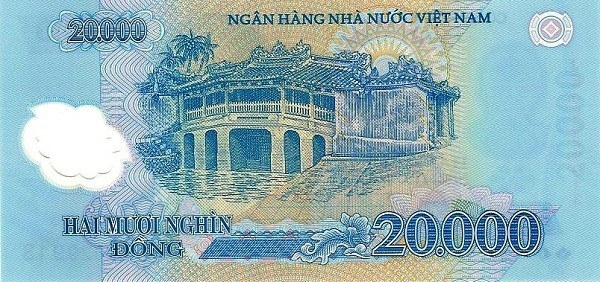
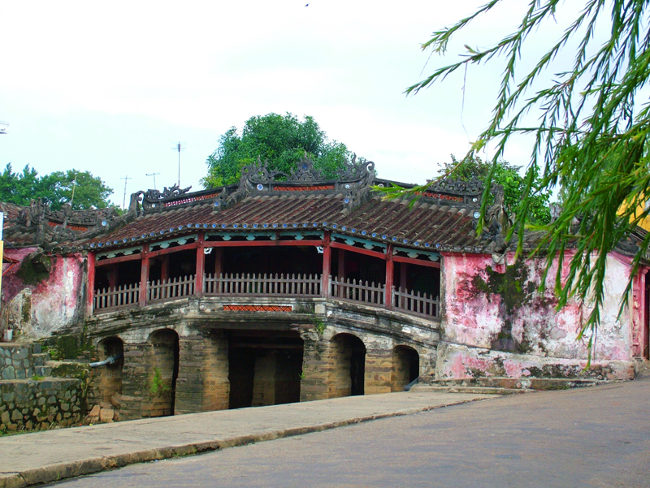
Anyone who comes to Hoi An cannot stop by the Cau Pagoda (also known as Japanese bridge because this bridge was previously contributed by Japanese traders to build from the 17th century). On the bill of 20,000 VND polymer is the image of Cau Pagoda (Hoi An) with ancient architectural beauty. According to the legend of the people here, the temple is considered as a sword that stabbed the mamazu monster, causing it to not swing its tail, causing earthquakes.
In 1653, the pagoda was erected, connected to the north railing, protruding from the middle of the bridge, from which the locals called the Cau Pagoda.
The bridge is about 18m long, with a roof, curving over the water stream to the Thu Bon river. The pagoda and the bridge are all painted with wood and elaborately carved, the pagoda face turns towards the river. This is considered a symbol of exchanges of Japanese - Chinese - Vietnamese culture in Hoi An and attracts many tourists.
9. 50,000 VND: Luong Dinh - Phu Van Lau National Monument

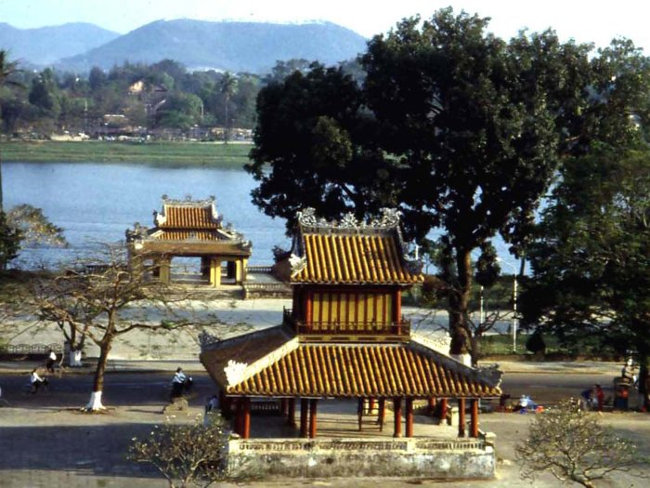
The image printed on the 50,000 VND sheet is the relic of Luong Dinh - Phu Van Lau (Hue). These two monuments were built during the Nguyen Dynasty. Luong Dinh is built right on the banks of the Perfume River, which is the place where the king's foot rests before going down to the river to board a dragon boat or make a cool place.
And Phu Van Lau was built under King Gia Long, this place is often used as the place where the king made important examples of the country, or it could be the place to inform the sons of the results of the contest was organized by the court.
10. 100,000 VND: Van Mieu - Quoc Tu Giam
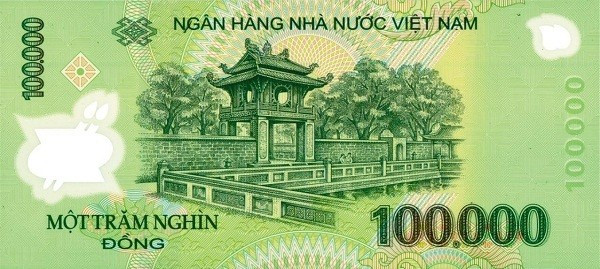
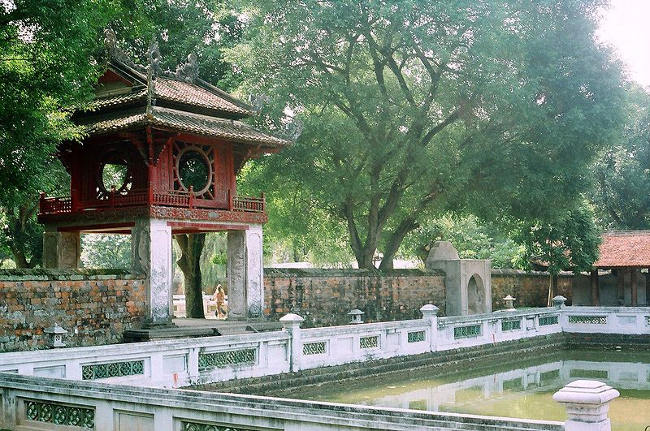
Quoc Tu Giam is a place that is no longer strange to each of us and is an image that appears on a bill of 100,000 VND polymer. Van Mieu - Quoc Tu Giam is considered a cultural symbol of Hanoi Capital and the school survives with the time of the nation. It is also a place to honor the tradition of religious mastery, virtue, and encouragement of the Vietnamese people.
Moreover, Van Mieu is also a famous tourist destination in Vietnam, attracting millions of visitors every year, as well as cultural and festival activities such as honoring Arts and Culture ethnic, poetry, calligraphy exhibitions, spring poetry introduction .
11. Ha Long Bay natural heritage of the world

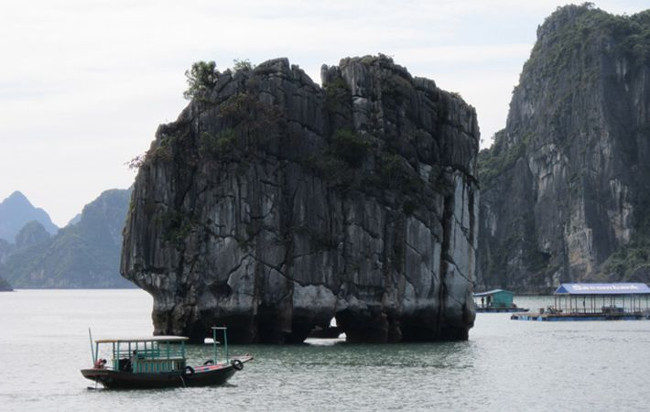
Two appearances on the surface of the bill, the old 10,000 dong and the 200,000 VND polymer bill, the world natural heritage of Ha Long Bay is a famous tourist destination.
Ha Long Bay is considered as a great visual art work of nature with the presence of thousands of stone-like islands, with many interesting caves converging into a world that is both lively and mysterious. .
On 200,000 sheet, Polymer copper is Dinh Huong island of Ha Long Bay. The stone is shaped like a giant incense burner standing in the middle of the sea as a sacred object to sacrifice heaven and earth.
12. 500,000 VND: Lotus Village
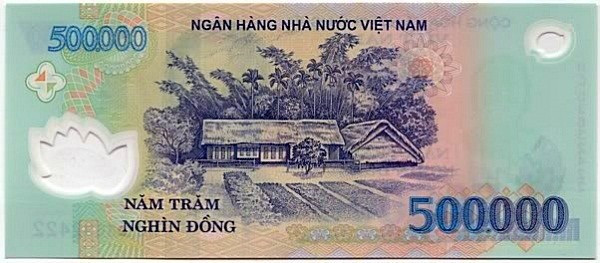

This is considered the highest denomination currency of our country today. This banknote was issued December 17, 2003. The image printed in this note is also extremely special, which is the 5-storey house in Sen village (Nam Dan, Nghe An), this is the home of President Ho Chi Minh.
At present, the house is put into Kim Lien relic, a tourist center to keep historical, cultural and cultural objects and documents about President Ho Chi Minh's childhood and family members. family.
Kim Lien historical site is included in the list of special national monuments and is one of the four most important monuments in Vietnam to President Ho Chi Minh. In addition to the above famous tourist sites, the other denominations of Vietnam are also printed with workers' pictures at Tri An hydropower plant, Nam Dinh textile factory, Tay Nguyen .
You should read it
- Viettel is licensed to test 5G network in Hanoi and Ho Chi Minh City
- 25 beautiful pictures of Vietnam make you say 'My country is so beautiful!'
- Thanh Minh and Vietnamese customs
- Secretary of State Mike Pompeo arrives in Vietnam: 'It's wonderful to be back in Hanoi'
- Many computers in Vietnam have been hijacked due to virus infection
- Lotus - the 'made in Vietnam' social network has opened an account registration and trial
 The most beautiful flowers are expected to be received on March 8
The most beautiful flowers are expected to be received on March 8 Funny sayings about women
Funny sayings about women Interesting riddles for Women's International Day 8/3
Interesting riddles for Women's International Day 8/3 Summarize the best wishes for your mother, wife and lover on March 8
Summarize the best wishes for your mother, wife and lover on March 8 Interesting facts about International Women's Day 8/3
Interesting facts about International Women's Day 8/3 Unique technology gifts for March 8
Unique technology gifts for March 8